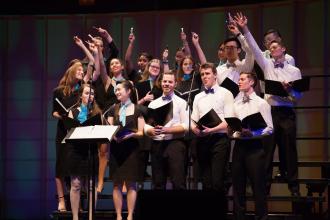The UBC Medicine Spring Gala is a yearly celebration of the visual and performing arts, where UBC medical students from all 4 years come together to showcase their talents and passions from outside medicine. It is a beloved event that brings together the medical community, and promotes connection, healing, and shared appreciation of creative expression.
Read More




